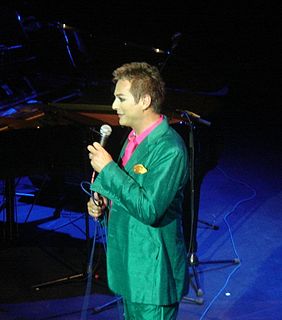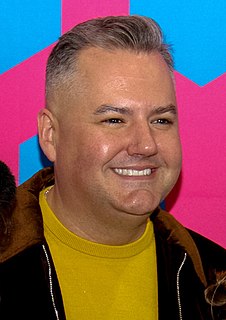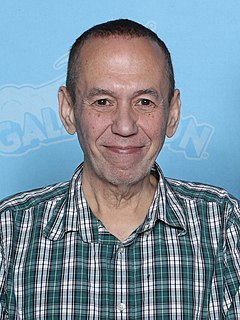A Quote by Julian Clary
I get just as much of a thrill out of constructing a good sentence that gets a laugh at the end as I do from a joke
Related Quotes
I have become a giant fan of the testing process, especially with a comedy. I mean, they tell you what's funny. It's almost tailor-made for people who shoot the way we shoot, trying a million different options and versions of things. Because the audience doesn't laugh at a joke, we put in another joke. If they don't laugh at the next joke, we put in another joke. You just keep doing them and you can get the movie to the point where every joke is funny, if you have enough options in the can.
I keep on repeating something told to me by an American psychologist: "When you are making a joke about someone and you are the only one to laugh, it is not a joke. It is a joke only for yourself." If people are making a joke they have the right to laugh at me but I will ignore them. Ignoring doesn't mean that you don't understand. You understand it so much that you don't want to react.
"I've found out why people laugh. They laugh because it hurts so much... because it's the only thing that'll make it stop hurting" ... "But that's not all people laugh at." "Isn't it? Perhaps I don't grok all its fullness yet. But find me something that really makes you laugh sweetheart... a joke, or anything else- but something that gave you a a real belly laugh, not a smile. Then we'll see if there isn't a wrongness wasn't there." He thought. "I grok when apes learn to laugh, they'll be people."
I want people to just be paying attention even if they're not necessarily laughing at something, or if it takes them a while to get something, I don't mind that. If half the crowd gets the joke and the other half is sitting there scratching their heads, that's just as good for me if I like the joke, because I feel like it just brings people in more.
Every sentence has a truth waiting at the end of it and the writer learns how to know it when he finally gets there. On one level this truth is the swing of the sentence, the beat and poise, but down deeper it's the integrity of the writer as he matches with the language. I've always seen myself in sentences. I begin to recognize myself, word by word, as I work through a sentence. The language of my books has shaped me as a man. There's a moral force in a sentence when it comes out right. It speaks the writer's will to live.
If a comedian tells a joke that you find funny, you laugh. If he tells a joke you do not find funny, don't laugh. Or you could possibly go as far as groaning or rolling your eyes. Then you wait for his next joke; if that's funny, then you laugh. If it's not, you don't laugh - or at very worst, you can leave quietly.
I have a tendency to feel a bit embarrassed when approached, but it's such a thrill to know that you did something that people enjoyed so much. It's an even bigger thrill when they talk to you about ideas that you worked so hard to get in there, and they single them out as reasons they enjoyed it so much.






































